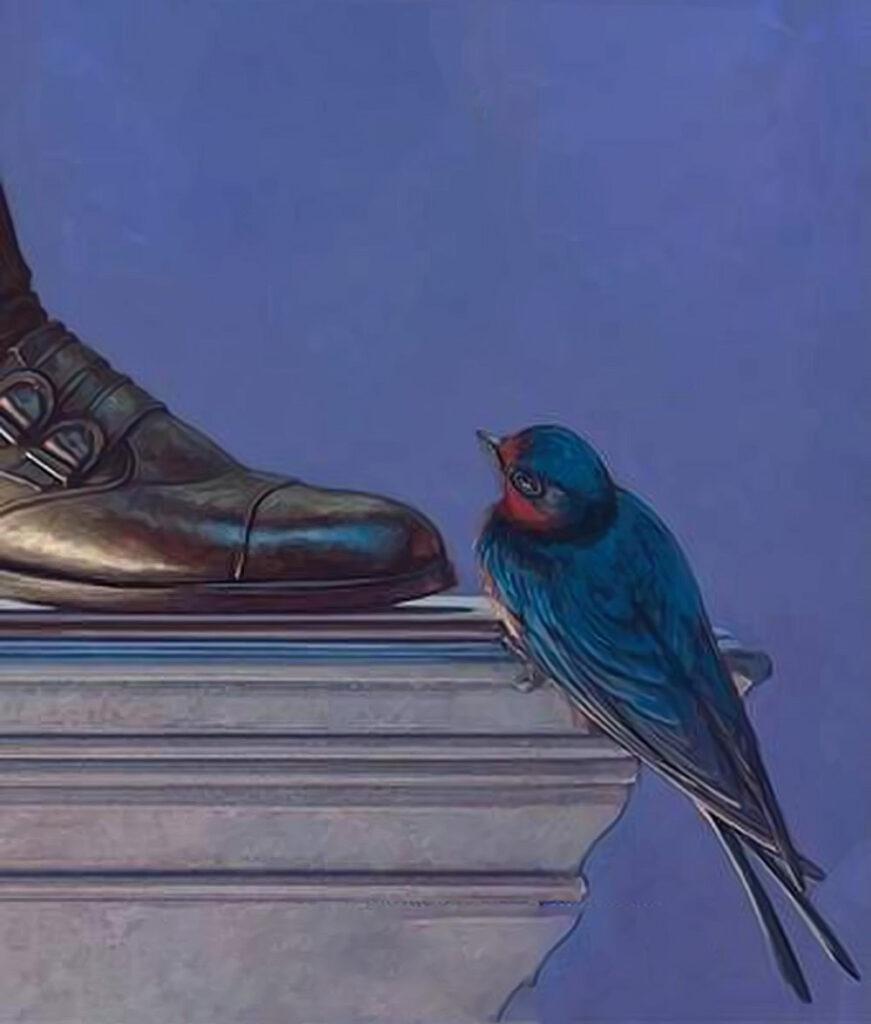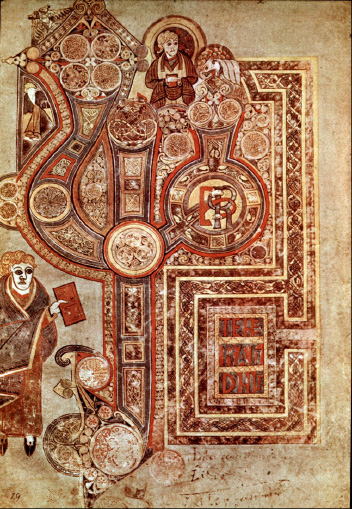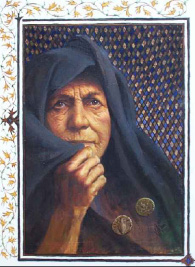The feast of Christ the King has not always been a part of our Christian calendar; the feast was established in 1925 by Pope Pius XI.
When I close my eyes and ruminate on the word “king” many words and images come immediately to mind; a jewel-encrusted crown, a big palace with many rooms and servants, privilege, wealth, power, and authority over, a bell is rung and others come running to be of service.
None of this sits easily with me in relation to Jesus.
Then when I consider the word “kingdom” images of wars and dominance, getting bigger by beating other people into submission and taking over their land and their indigenous way of life and supplanting that way with a supposedly “superior” way.
Again, there is within me a disquiet.
Then along comes, Oscar Fingal O’Flahertie Wills Wilde, an Irish poet and playwright, known to most as simply Oscar Wilde (1854 – 1900).

Wilde wrote a short story titled “The Happy Prince”, a story I read and heard read on the radio throughout my childhood.
Now I know that a prince is not a king, however, they are a sort of ‘baby’ king!
In Wilde’s story, I found an entry into today’s feast.
A short synopsis of the story, and as you read have in mind the Jesus of the Gospels: During his life on earth, the prince had lived a very sheltered life.
When he died the people erected a statue of him in the main square of the capital city.
The statue was gilded all over with leaves of gold. It had two sapphires for eyes and a large red ruby on the handle of the sword. One cold evening, a little swallow, on its way south, landed at the base of the statue.
As he was resting there a few drops fell on him.
He looked up and saw that the Happy Prince was crying.
“Why are you crying?” the swallow asked.
“When I was alive, I saw no suffering,” said the Prince.
“But from my perch up here I see that there is a lot of unhappiness in the world. I’d like to help but I can’t because my feet are fastened to the pedestal. I need a messenger. Would you be my messenger?”
“But I have to go to Egypt,” the swallow answered.
“Please stay this night with me.”
“Very well, then. What can I do for you?”
In a room, there is a mother tending a sick child. She has no money to pay for a doctor. “Take the ruby from my sword and give it to her.”
The swallow removed the ruby with his beak and bore it away to the woman and she rejoiced.
The doctor came and her child recovered.
The swallow came back and slept soundly. The next day the prince asked him to stay another night.
Then he asked him to take out one of the sapphires, and to give it to a little match girl down the square.
She had sold no matches that day and was afraid she would be beaten when she got home.
Once again the swallow did as he was asked.
As he was running these errands of mercy, the swallow’s own eyes were opened. He saw how much poverty and suffering there was in the city.
Then he was glad to stay with the prince and be his messenger.
One by one, at the Prince’s urging, he stripped off the leaves of gold and gave them away to the poor and needy.
Finally, he arrived back one evening.
The night was very cold.
The next morning the little swallow was found dead at the base of the statue.
By now the statue was bare, having been stripped of all its ornaments.
The prince had given away all his riches, but he could not have done so without his faithful messenger, the little swallow.
Christ, our King, gave himself away totally while he lived on earth.
Even as he died, he was still giving to those who were receptive. And from his lofty perch in heaven, he surveys the plight of God’s children on earth. But his feet are fastened, his hands tied, and his tongue silent.
He needs messengers.
He needs us.
He has no hands but ours, no feet but ours, no tongue but ours.
And it is his riches, not our own, that we are called on to dispense – his love, his forgiveness, his mercy, his good news….
What is involved is helping in simple things, things that are available to everyone – giving a hungry person something to eat, or a thirsty person something to drink, welcoming a stranger, or visiting someone who is sick or in prison….
To do things such as these one doesn’t have to be either wealthy or talented.
All one needs is a warm and willing heart.
Everyone can do something – yes, even a little “swallow”.
A Note of caution: if like the swallow, you give of your time to your “King” you may never get to Egypt!




